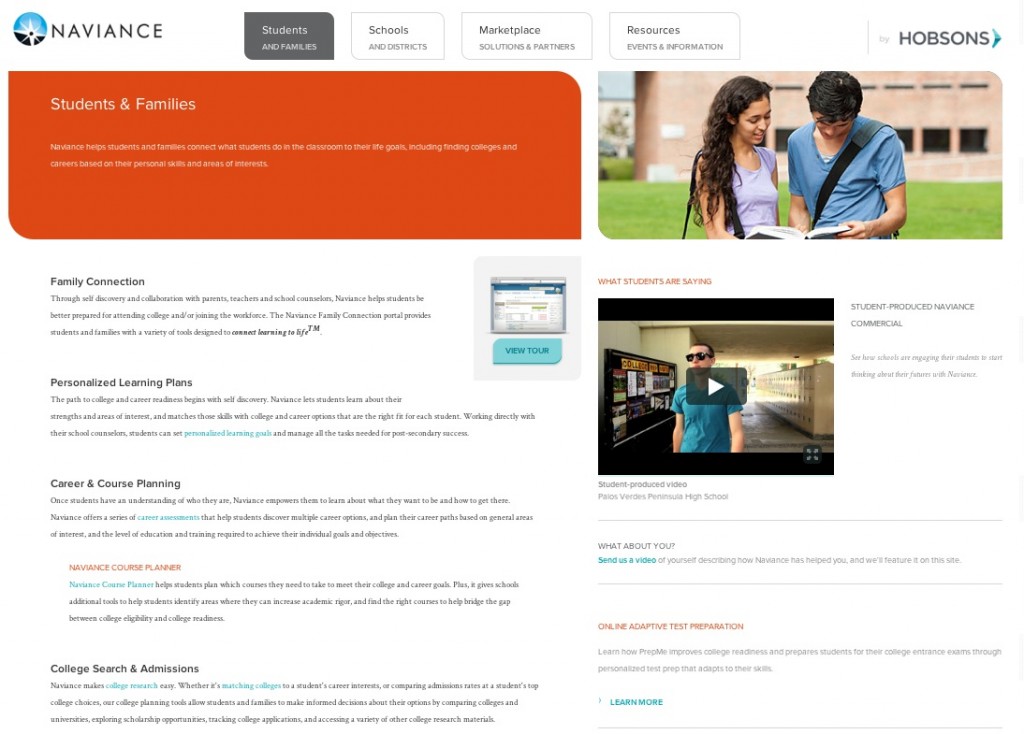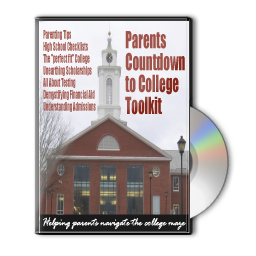Earlier this year, I wrote a post about Alleyoop, a program designed to help students prepare for college by improving their math skills.
Today Alleyoop is partnering with Hobsons to create even more customized recommendations to keep students on track to reach their college and career goals through Naviance. With more than 5 million students in 5,500 schools around the globe, Naviance is the world’s largest college and career readiness platform. Through this partnership, students can use their Naviance Family Connection accounts to benefit from the collective intelligence of the Alleyoop Super Brain to improve their math and science skills.
“Alleyoop is about so much more than getting immediate math and science help — it’s about letting students take control of their education,” said Patrick Supanc, president of Alleyoop. “With this new partnership, Alleyoop becomes a destination for students and families on Naviance to get personalized academic resources that help make their dreams a reality.”
Alleyoop helps students succeed by connecting them with the right resources at the right time. Students will now get customized, tailored math and science help from Alleyoop based on the goals they set within the Naviance Family Connection portal.
According to The National Center for Public Policy and Higher Education, every year in the United States, nearly 60 percent of first-year college students discover that, despite being fully eligible to attend college, they are not academically ready for postsecondary studies. Alleyoop and Naviance are helping to bridge the gap between college eligibility and college readiness by providing a way for students to set academic and career goals, and map out a plan of action to achieve them.
“The combination of Naviance and Alleyoop makes it easier than ever for students to tie learning to life,” said Stephen M. Smith, President, Hobsons K-12. “At Hobsons, we strive to connect everything a student learns to a real-world objective. Our partnership with Alleyoop helps students tie their interests and skills to real college majors and careers, and preparing them academically and personally for a bright future.”







 Only a few years ago, online education was the realm of the non-traditional student. Whether you were a high school dropout, a dad working three jobs, or a retiree who simply wanted to take some classes, chances were that you were not a typical college student if you were signed up for courses online.
Only a few years ago, online education was the realm of the non-traditional student. Whether you were a high school dropout, a dad working three jobs, or a retiree who simply wanted to take some classes, chances were that you were not a typical college student if you were signed up for courses online.


 Remember when your now teenager came up to you as a toddler and said they wanted to be a doctor when they grew up? We smiled and said, “that’s great sweety” and knew that years down the road their interests would change. But what if it didn’t change? What if your college-bound teen still wants to pursue a career in health care? How do you help them find the career and right education path that best suits their personality and career goals?
Remember when your now teenager came up to you as a toddler and said they wanted to be a doctor when they grew up? We smiled and said, “that’s great sweety” and knew that years down the road their interests would change. But what if it didn’t change? What if your college-bound teen still wants to pursue a career in health care? How do you help them find the career and right education path that best suits their personality and career goals?